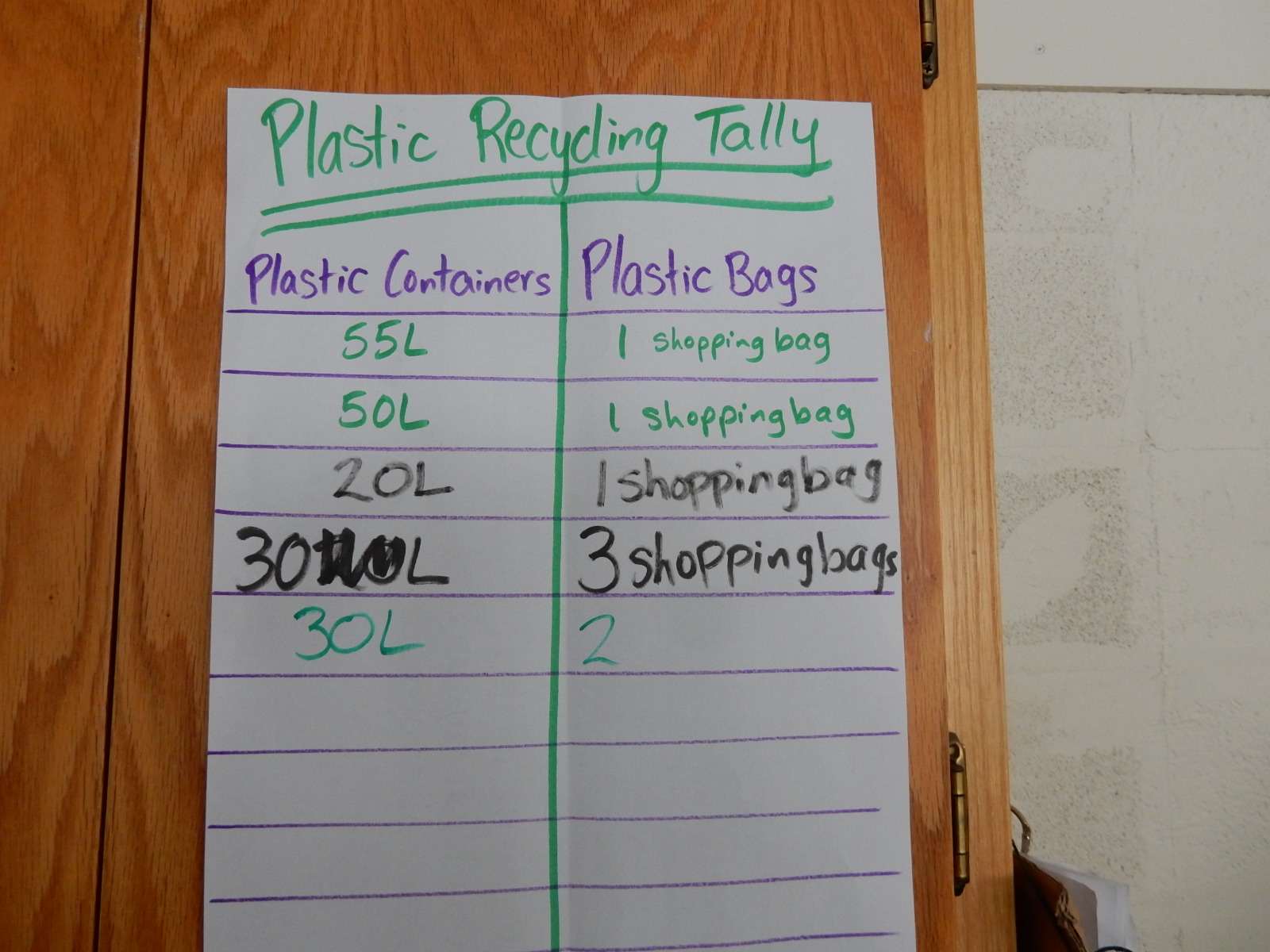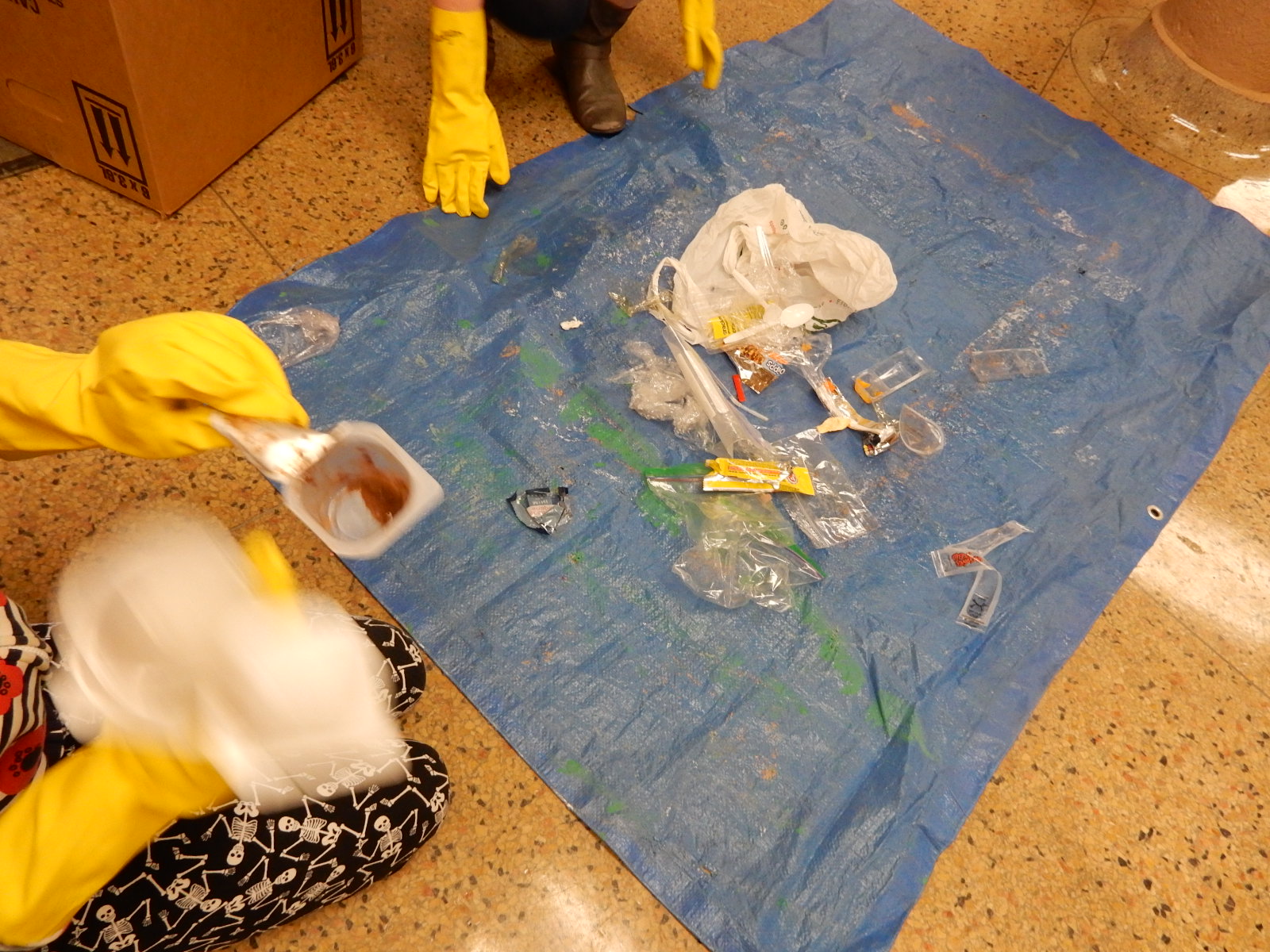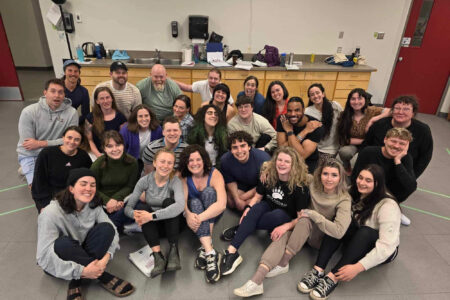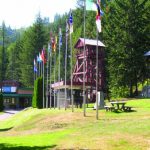Rossland Summit School class tackles the plastic problem
Anyone who is paying any attention at all knows that plastic pollution is a huge problem for life on earth. Plastic litter floods into rivers, washes into the sea, chokes beaches and wildlife, breaks down into micro-particles that pollute our waterways and our drinking water; it migrates into the ocean, where it either ensnares marine life or starves them or poisons them. And far too much recyclable plastic goes into landfills, where it can remain virtually forever, doing no one any good at all and abbreviating the useful life of the landfill site. Dumped plastic is a waste of the petroleum that is used to make it.
Last year, Bridget O’Malley’s class at RSS decided to do something about the amount of recyclable material, especially plastic, and refundable items from their school that were being thrown into the McKelvey Creek landfill instead of being recycled. After doing a basic garbage audit, the students discovered that 16% of the discarded “trash” was recyclable plastic. They came up with a plan of action.
They obtained a 64-litre curbside recycling container, and they made and set up prominent bins for recyclable and refundable materials, to remind other students and to make it easy for them to put stuff in the right place:
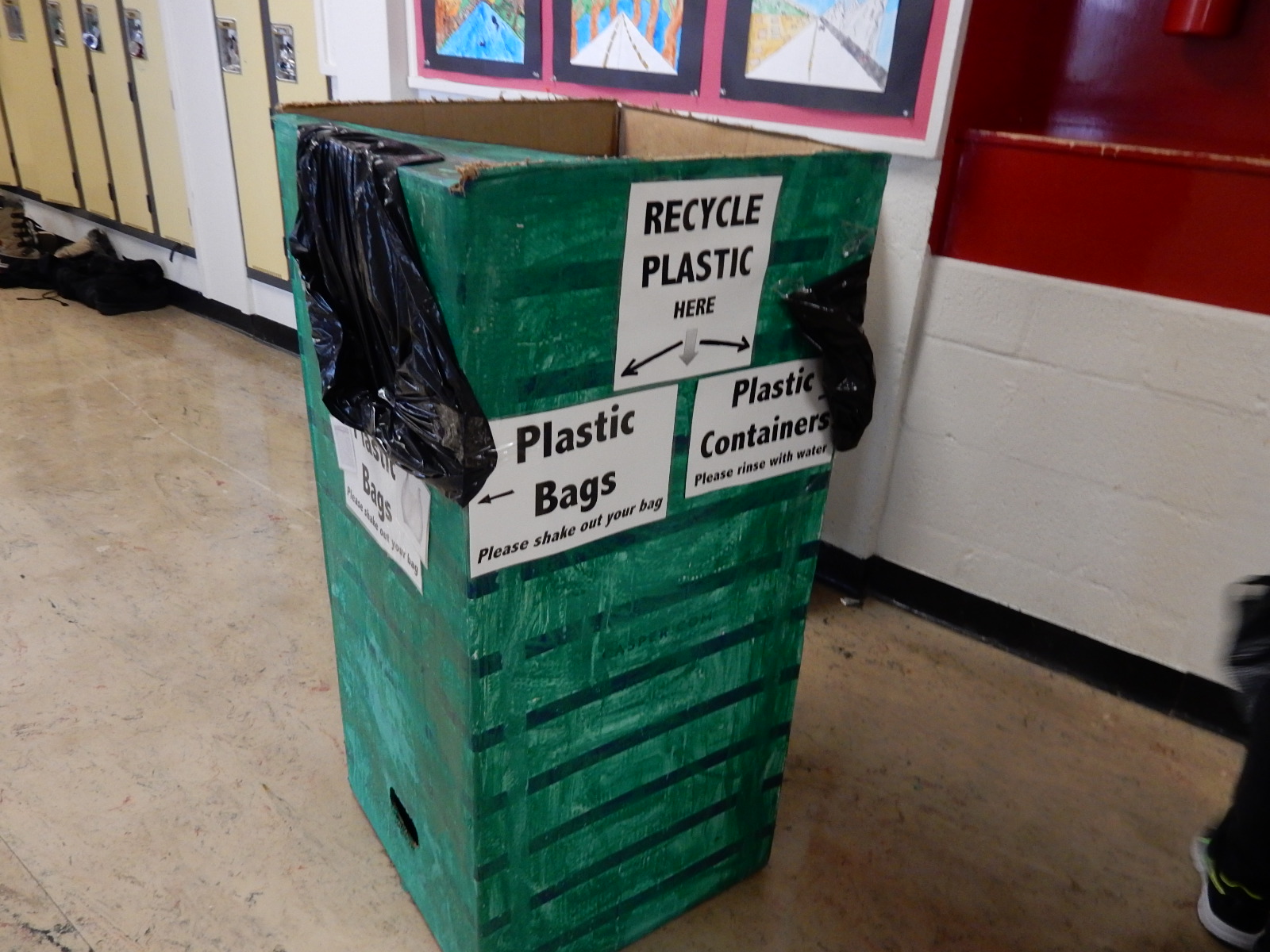
Every Friday, they put on rubber gloves and gather all the material from those bins and sort it; that’s necessary because even with the constant reminder, not everyone bothers to put things in the right place: the students reported finding a used disposable diaper in one of their recycling boxes at one point.
They also gather all the material from garbage containers, and sort it, too, to catch recyclables that careless students tossed in the trash. It can be a messy, icky job, and they often have to wash out containers with food stuck to them, but they do it with a wonderful spirit of camaraderie and a certain amount of entertainment by throwing things from a distance into the right receptacle: “basketball practice!”
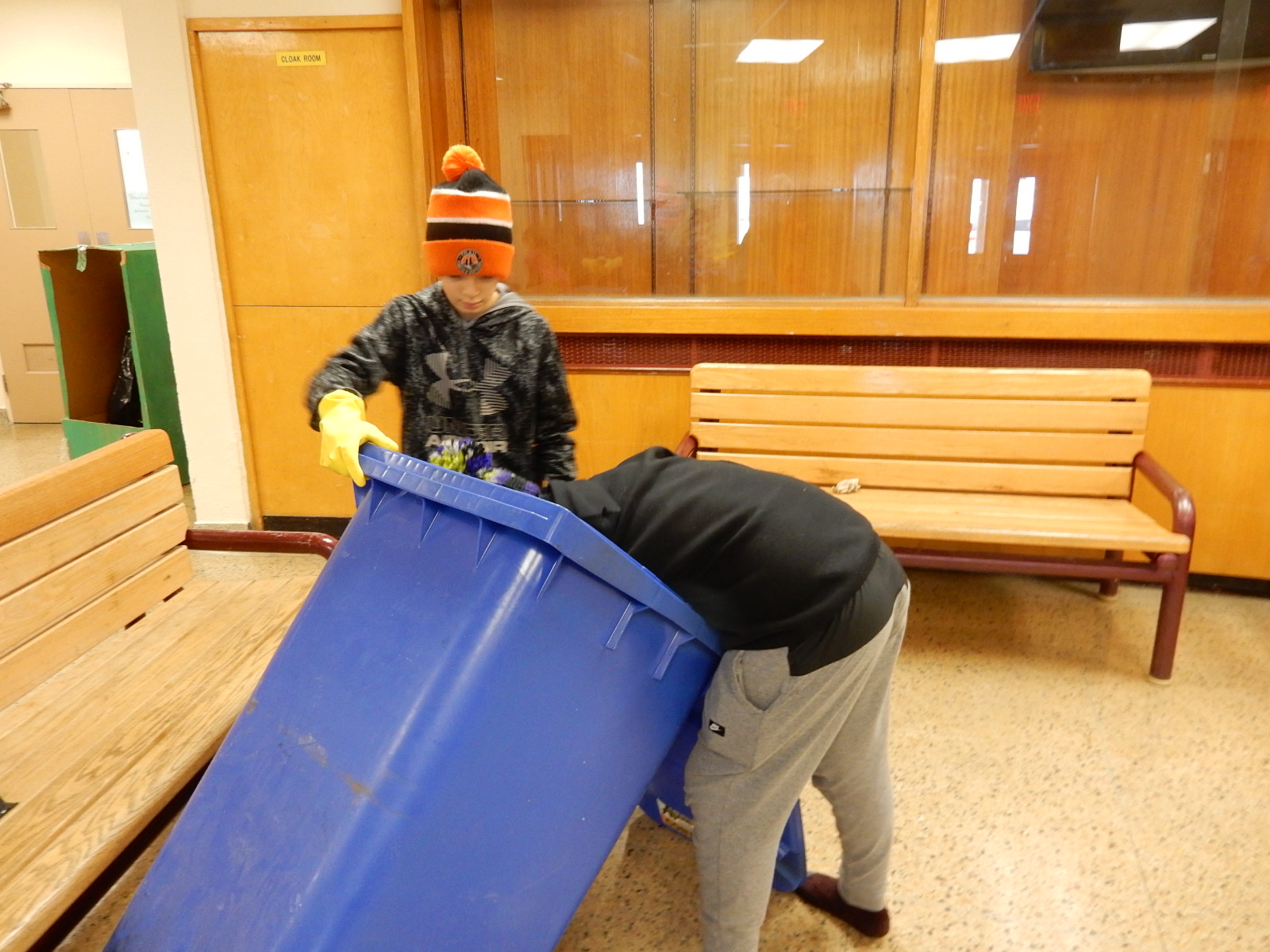
When asked how the class was inspired to start this project, students explained that Jess Williams of Wildsight came to the school and introduced them to “Garbology.” One student explained, “She taught us about the life-cycle of garbage, and where it ends up.” Students toured the Alpine Recycling Centre. They were shocked by what they learned, and began their plastics project as an “eco-challenge.”
The class went far beyond merely collecting trash and sorting it. They spoke with the school’s principal, and the Parent Action Committee (PAC), and all the other classes in the school, to help them understand the problem, to get a place to wash out dirty plastic containers, to educate parents about how they can help: by reducing the amount of plastic sent to school in lunch-boxes, by re-using plastic containers and zip-loc bags, and recycling more plastics at home. At the RSS “Winter Gala,” the class show-cased their project to send the message to more people.
The students explained that recycled plastic gets compacted into bales and sent to Surrey to be exported. They were aware of China’s recent refusal to continue accepting some of the material that was formerly exported to that country for treatment, and neither the students nor anyone else really knows yet how that will affect Canada’s recycling programs. One student suggested that Canada should start using the recyclable plastic that we generate to manufacture useful items and create employment. One example of such a product could be the “building blocks” being manufactured by a company in Colombia, and a similar product by another company in New Zealand.
There is great value in what these students are doing, not only to reduce the waste of recyclable materials thoughtlessly discarded as garbage, but also in the ripple effect of the education of and by the students. When asked if the project has changed their attitudes toward garbage and recycling, and their habits, many of the students declared that it has, and gave examples of how they and their families have increased their recycling and decreased their trash.
There have been arguments to the effect that we shouldn’t be worried about plastic bags, for example, because there are more urgent concerns, but that argument seems rather pointless and empty. Every little bit that we improve our society and our environment helps us toward a better future. Bridget O’Malley’s class members are among those leading the way.
